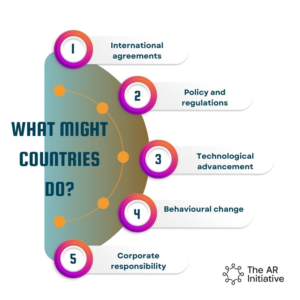This article explores the potential of reaching the net-zero goal in the face of increasing climate change and global warming. It provides adaptability measures to navigate this rising extreme weather. Net zero goals (also known as net zero emissions goals or targets) refer to the commitment made by organisations, governments, and other entities to balance the amount of greenhouse gasses they emit into the atmosphere with an equivalent amount of greenhouse gasses removed from the atmosphere or offset through various means.
Objectives of Net Zero goals
The ultimate objective of a net zero goal is to achieve a state where the entity’s overall greenhouse gas emissions are effectively neutralized or reduced to a level where they no longer contribute to climate change. Specific elements of net zero goals include:
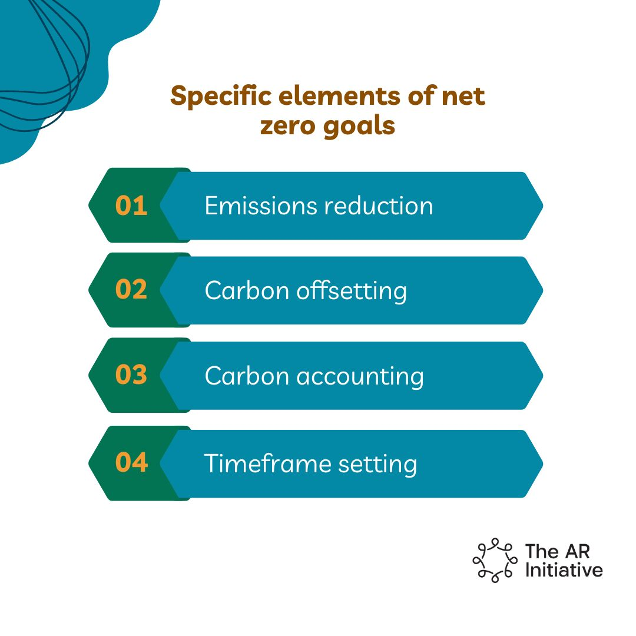 Figure 1: Specific elements of net zero goals
Figure 1: Specific elements of net zero goals
Net zero goals are a critical component of global efforts to combat climate change, as outlined in the Paris Agreement, an international treaty aimed at limiting global warming to well below 2 degrees Celsius above pre-industrial levels. Achieving net zero emissions is seen as a crucial step in meeting these temperature targets and preventing the most severe impacts of climate change. Governments, businesses, and institutions around the world are increasingly adopting net zero goals as part of their sustainability and climate action strategies to contribute to the reduction of greenhouse gas emissions and limit the global temperature rise, but there is much to be done in the continent of Africa. Figure 2 shows the net zero race across the world.
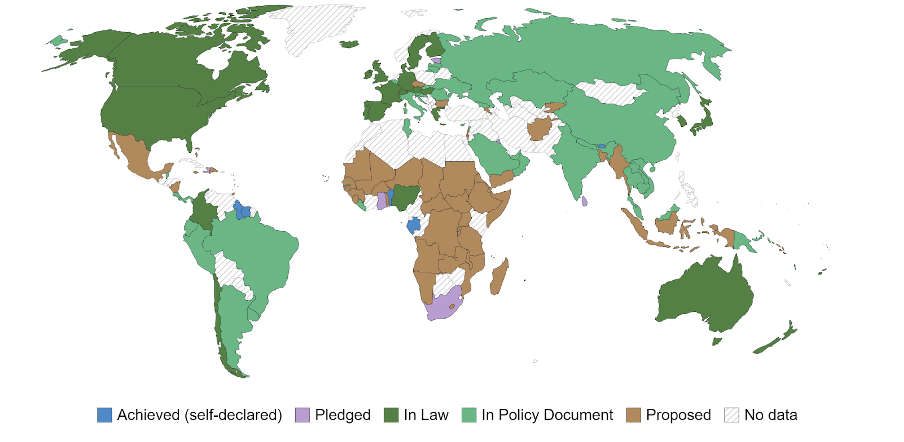 Figure 2: Net zero emissions race | Source: https://ourworldindata.org/grapher/net-zero-targets
Figure 2: Net zero emissions race | Source: https://ourworldindata.org/grapher/net-zero-targets
As Figure 2 highlights, some African countries are yet to develop detailed plans and strategies to achieve net-zero goals. It also highlights that most countries globally are behind in meeting the target. This leads us to another important question: What are the inhibitors to achieving the net zero goals? (Table 1 below highlights some of these inhibitors).
Inhibitors to net zero goals
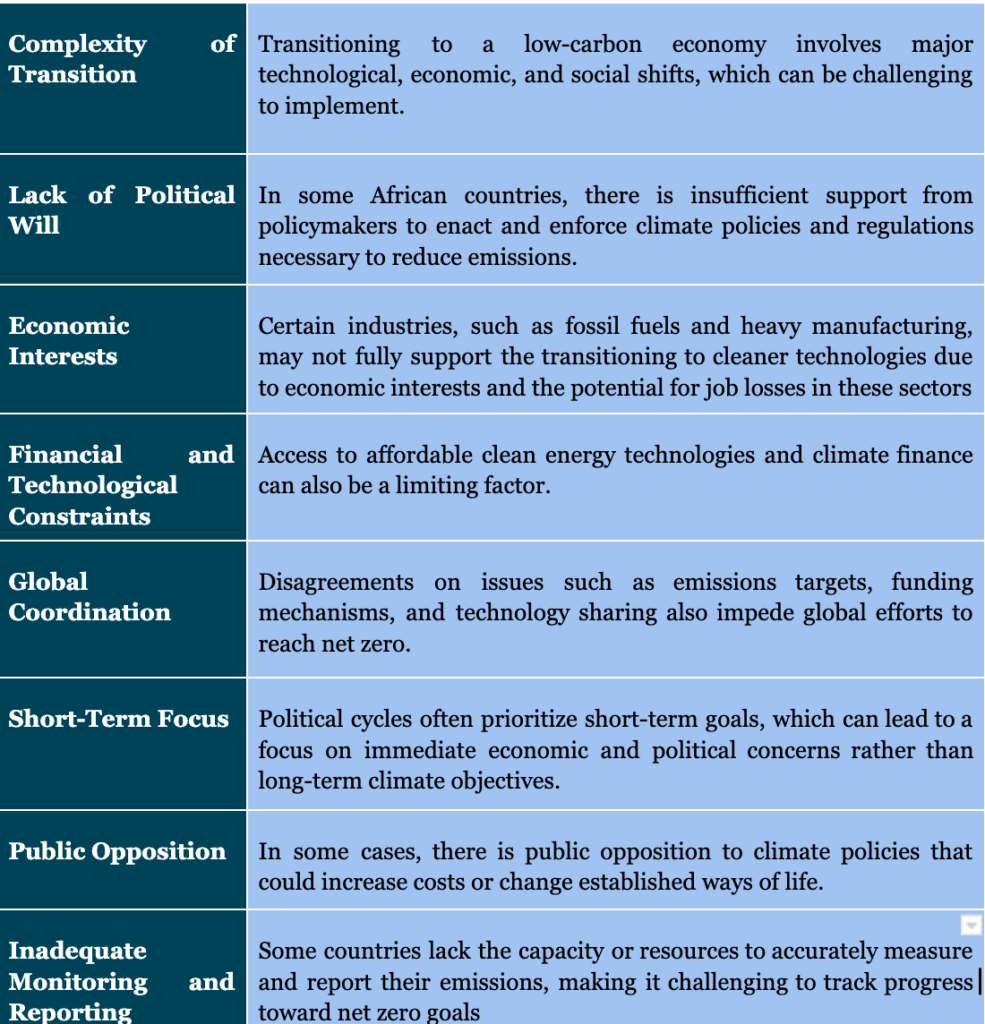
Table 1: Inhibitors to achieving the net zero goals
Navigating through the increasing global warming
To meet net-zero goals, governments, businesses, and individuals must not only reduce emissions but also adapt to the changes that are already occurring due to global warming. This includes investing in resilient infrastructure, sustainable agriculture, and renewable energy sources while maintaining a focus on equity and social justice to ensure that the burden of adaptation and mitigation is shared equitably among all communities.
We acknowledge that globally, the journey to achieving the net zero goal is slow-paced. Research by Energy Monitor shows that only 8 countries including Bhutan, Comoros, Gabon, Guyana, Panama, Madagascar, Niue, and Suriname have achieved net zero. (See Figure 3). It is projected that given the current pace, it might take some countries till 2070 to achieve these goals, especially those with no concrete laws and policy documents to address carbon emissions. Hence the need for these countries to observe and emulate the strategies that were implemented by the 8 countries. For example, Gabon adopted an environmental conservation model with a strong commitment to non-deforestation and sustainable management of its natural resources. In addition, Panama, Suriname and Bhutan formed an alliance of carbon-negative countries, calling for trade and carbon-pricing support which encouraged greater efforts to reach net zero.
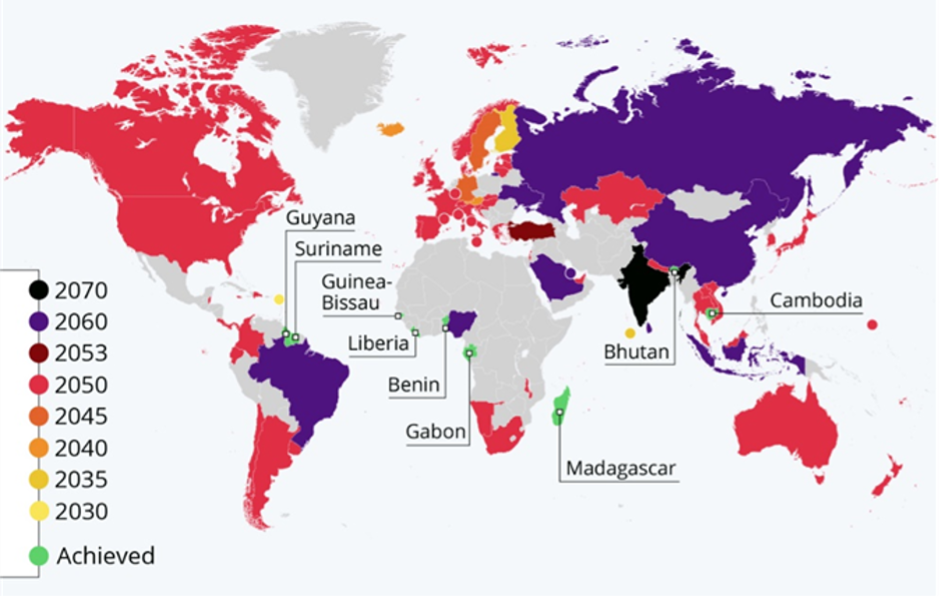 Figure 3: The road to Net Zero | Source: Statista (2021)
Figure 3: The road to Net Zero | Source: Statista (2021)
The urgency of addressing climate change has become more apparent with the increase in extreme weather events, wildfires, sea-level rise, and other climate-related impacts. The sooner actions are taken to reduce greenhouse gas emissions, the better the chances of limiting global warming. Now, what might countries do? (see Figure 4)
Figure 4: What countries should do
Curbing global warming and climate change remains a complex and ongoing effort with growing recognition of the need for urgent action. However, we need to embrace the fact that success will depend only on sustained commitment and collaborations at the global, national, and individual levels.
About the Author(s)
Olayide Oyeleke is an associate at The AR Initiative; where Dr Emma Etim is the Head of Research.
